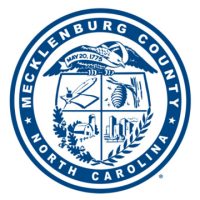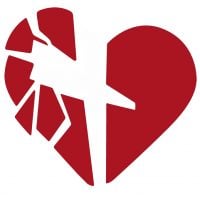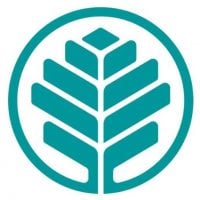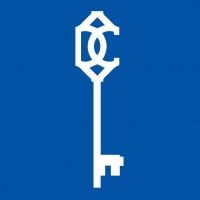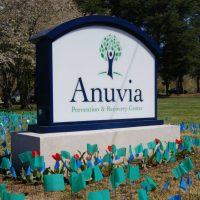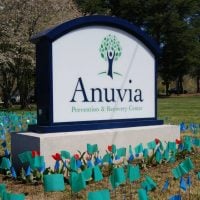Mecklenburg County Community Support Services - Men's Shelter
Drug Rehab Center in Charlotte, North Carolina
Mecklenburg County Community Support Services offers housing and assistance to those facing addiction and other issues, including substance abuse, through a range of services including aftercare, drug rehab, and counseling.
About Mecklenburg County Community Support Services - Men's Shelter in North Carolina
Mecklenburg County Community Support Services - Men's Shelter is an accredited alcoholism and drug addiction treatment facility in Charlotte, North Carolina. The facility is affiliated with Mecklenburg County Community Support Services and holds accreditation from CARF (Commission on Accreditation of Rehabilitation Facilities). With a focus on assisting individuals suffering from alcoholism, dual diagnosis, opioid addiction, substance abuse, and drug addiction, the facility offers a range of services to meet various levels of care. These services include aftercare support, drug rehab, dual-diagnosis treatment, intensive outpatient programs, and outpatient treatment.
Mecklenburg County Community Support Services - Men's Shelter provides a holistic approach to address addiction and substance abuse. They offer aftercare support to help individuals transition back into their normal lives after completing treatment. The facility provides drug rehab programs to aid in the recovery process, promoting long-term sobriety and addressing the underlying issues surrounding addiction. Additionally, the facility specializes in dual-diagnosis treatment, recognizing the importance of addressing mental health conditions alongside addiction. They also offer intensive outpatient programs and outpatient treatment options to accommodate individual needs and preferences. By providing a comprehensive range of services, Mecklenburg County Community Support Services - Men's Shelter aims to support individuals on their journey to recovery and improved well-being.
Genders
Ages
Modality
Additional
Accreditations

CARF
The Commission on Accreditation of Rehabilitation Facilities (CARF) is a non-profit organization that specifically accredits rehab organizations. Founded in 1966, CARF's, mission is to help service providers like rehab facilities maintain high standards of care.
Conditions and Issues Treated
It’s not easy getting sober on one’s own, or even going to rehab and escaping the grasp of addiction by oneself. Substance abuse treatment gives addicts a place to stay sober while learning what it takes to quit for good. They will learn from others about what works and what doesn’t work with remaining drug-free.
Treatment centers such as Mecklenburg County Community Support Services - Men's Shelter focus on the needs of individual addicts to heal them. There is a combination of physical and mental therapies that treat the root cause of the addiction, whether it be family problems, stress, or past traumatic events.
The final benefit of substance abuse treatment is introducing new people who can help in your recovery after you leave Mecklenburg County Community Support Services - Men's Shelter. Through group therapy sessions with other addicts and attending support meetings once a day, a person will learn how to interact with others and cope with cravings. This is a chance for you to rebuild your social circle healthily after you leave treatment.
Opioid addiction starts when a person becomes addicted to legal or illegal opioids. The addiction can happen quickly, in just a matter of days. Opioid withdrawal can be extremely uncomfortable and lead the user to continue to use even if they want to quit. Stopping using an opioid requires medical observation. Sometimes inpatient treatment with a medically supervised detox is necessary for managing the withdrawal process while learning lasting tools for maintaining recovery. Medications may be used in some cases of opioid addiction.
Opioid addiction is one of North Carolina‘s most prominent forms of addiction. It’s treated by detoxifying the body so that the chemicals from the medications no longer impact them and by therapies to correct behavior and target the root of the problem.
Recovery is not simply about stopping drug use. Recovery is working with addiction while recovering mental health issues that are fueling the addiction in the first place.
Levels of Care Offered
This center offers a variety of custom treatment tailored to individual recovery. Currently available are Aftercare Support, Drug Rehab, Dual-Diagnosis, Intensive Outpatient, Outpatient, with additional therapies available as listed below.
Addicts who need help with their addiction can enroll in an intensive outpatient program (IOP). But the patient won’t live there during treatment.
IOP involves patients visiting a medical office building regularly for therapy and other services while continuing to live their lives.
IOP is a step up from drug or alcohol detox, but it’s still a phase of recovery, not the end goal. Patients in need of IOP have many options for rehab and treatment.
Outpatient treatment is considered the lower intensity level of addiction treatment. It’s ideal for early phase addiction or lower intensity addictions. It may include weekly sessions instead of daily. It may include weekly sessions instead of daily. Peer group support, 12-step programs, and individual counseling may still be involved but at a lesser frequency than an intensive outpatient program. It is a good choice for someone who doesn’t need to go through a medically supervised detox and who has a supportive home environment. It requires motivation and dedication to commit to the program without constant monitoring.
Aftercare support should take place after outpatient treatment has ended. There are a few different types of aftercare support that patients can seek. These include 12 Step, Self-help groups (AA, NA), Therapeutic communities, Long-term, structured sober living arrangements, and Halfway houses (residential treatment centers).
Therapies & Programs
Individual therapy involves one-on-one sessions between the patient and therapist. It provides patients with a safe environment to openly discuss personal and sensitive issues with the therapist. They find the therapist as someone they can trust. Individual therapy aims to identify the core issues that would have led the patient to substance abuse and address them effectively. The therapist can develop patient-specific customized solutions through individual therapy, which aids speedier recovery.
Groups typically involve meetings with other recovering addicts who can relate to one another’s experiences. They might meet in person or online and typically focus on the process of staying sober rather than overcoming a specific addiction.
In these groups managed by Mecklenburg County Community Support Services - Men's Shelter, addicts can build a sense of community and develop strong emotional connections with others who understand what they are going through. These beneficial relationships can help addicts overcome their cravings and prevent relapse at any point during the recovery process.
In general, trauma therapy is a clinical process that helps individuals deal with mental stress often caused by traumatic events. The therapist helps the person identify, understand, and work through the problem. This is done with the help of talking about it in group or one-on-one counseling sessions. Therapists use relaxation, role-playing, art, and music to help the person open up about what is bothering them.
There are many different types of trauma therapists, such as psychiatric nurses and counselors. Not everyone is a good candidate for this type of therapy; it is generally reserved for people who have recently experienced a traumatic event and struggle to get over it. It is often done for children, teenage victims of sexual assault, and war veterans.
There is hope for people who are addicted to drugs and alcohol. Cognitive Behavioral Therapy (CBT) is the solution. CBT focuses on the underlying thoughts and behaviors that caused the addiction problem in the first place and may cause a relapse. This type of psychotherapy addresses negative feelings common in substance abuse disorders. It helps to change them by restructuring thought patterns. It’s about removing negative thoughts and providing long-term benefits while promoting self-awareness, self-control, and healthy ways to respond to negative thoughts. These sessions can be done by themselves or as part of combination therapy.
Since addiction is a chronic physical and mental illness, addicts need to learn as many life skills as possible. Many drug treatment centers offer life skills activities as part of their addiction recovery programs. Examples include cooking classes, employment training, resume writing seminars, parenting classes, and computer training. Life skills activities help addicts find employment, take care of their families, and give back to the community.
Payment Options Accepted
For specific insurance or payment methods please contact us.
Mecklenburg County Community Support Services Associated Centers
Discover treatment facilities under the same provider.
- Mecklenburg County Community Support Services - Center of Hope in Charlotte, NC
- Mecklenburg County Community Support Services - Jail North in Charlotte, NC
- Mecklenburg County Community Support Services - Jail Central in Charlotte, NC
Learn More About Mecklenburg County Community Support Services Centers
Additional Details
Specifics, location, and helpful extra information.
Charlotte, North Carolina 28206 Phone Number(704) 562-7259 Meta DetailsUpdated November 25, 2023
Staff Verified
Mecklenburg County Community Support Services - Men's Shelter Patient Reviews
There are no reviews yet. Be the first one to write one.
Charlotte, North Carolina Addiction Information
North Carolina ranks 29th in the nation for overall substance abuse. Many of the drugs abused in the state are illicit, and many of these are opioids. Prescription opioids are readily available due to the high rates of medical workers prescribing them. The number of prescriptions has increased tenfold since the 1980's. Opioid overdoses are the most common type of death in North Carolina.
4.3% of Charlotte residents aged 12 and older reported using illicit drugs. There are over 60,000 people addicted to drugs in Charlotte, North Carolina. This harms the community and contributes to crime and other social problems. Medication-assisted treatment is often used in conjunction with other forms of treatment, such as therapy, and can be very successful in helping someone overcome addiction.
Treatment in Nearby Cities
- Hudson, NC (56.6 mi.)
- Havelock, NC (223.8 mi.)
- Jonesville, NC (69.4 mi.)
- Wilmington, NC (181.7 mi.)
- Boone, NC (82.8 mi.)
Centers near Mecklenburg County Community Support Services - Men's Shelter
The facility name, logo and brand are the property and registered trademarks of Mecklenburg County Community Support Services - Men's Shelter, and are being used for identification and informational purposes only. Use of these names, logos and brands shall not imply endorsement. RehabNow.org is not affiliated with or sponsored by Mecklenburg County Community Support Services - Men's Shelter.



